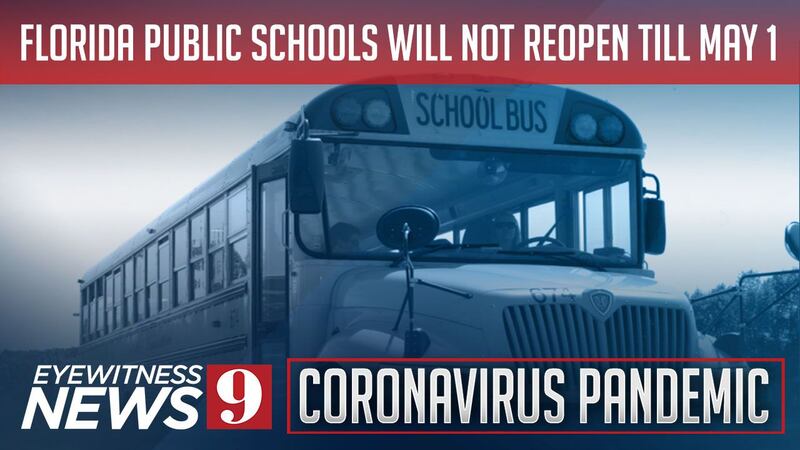ORANGE COUNTY, Fla. — Students, teachers, and parents across Florida are navigating the challenges that come along with distance learning. For children with special needs and on individualized education plans, the lack of one-on-one instruction is even more difficult to overcome.
Channel 9 investigative reporter Karla Ray spoke with a local mom about the struggles, and looked into how many students this impacts in our area’s largest district, Orange County Public Schools.
OCPS has 25,417 students with disabilities on an individualized education plan (IEP). District leaders said they are working hard to continue to provide services for exceptional education students during distance learning and making sure both parents and students know how to access information through a variety of resources.
READ: Coronavirus: Where COVID-19 testing is available in Central Florida
Still, it’s tough.
For Orange County third-grader Chance Kern, distance learning has been exhausting.
“It’s a lot more problematic for us, because he needs constant attention,” said Chance’s mom, Amanda Kern. “Either myself or his brother, are hand holding him a lot, because he gets stuck.”
Chance has spina bifida, and is on an IEP. His IEP includes one-on-one help from a paraprofessional and small-group attention for math and reading several times a week. Now, though, it’s up to him to navigate distance learning and a multitude of applications without the professional help.
“Obviously, the IEP is thrown out the window, and we still have to find a way to meet their needs,” Kern said.
READ: Stimulus checks: IRS to launch site that allows you to find out when you get yours
Federal education leaders provided guidance to schools about how to handle the COVID-19 crisis. In a list of questions and answers on the IDEA website, it states “schools must ensure that, to the greatest extent possible, each student with a disability can be provided the special education and related services identified in the student’s IEP.”
“The reality is, for a short period of time, school districts are doing the best that they can,” state Rep. Rene Plasencia, of Orlando, said.
Plasencia’s family runs an autism center in Orange County, and he advocates for all children with special needs through his role in Tallahassee. He agrees the current system isn’t perfect, but notes it’s temporary.
“I don’t know how much, through distance learning, they can truly address a student on an IEP,” Plasencia said. “They’re doing the best they can on the circumstances, not knowing how long we’ll be doing this.”
READ: Coronavirus: Here’s how to apply for unemployment in Florida
Kern said she has been in contact with Chance’s teachers and his paraprofessional to come up with solutions together. She knows teachers are overwhelmed, and so are parents like her.
District leaders said that during this unprecedented time in our history, schools may not be able to provide all services in the same manner they are typically provided. However, OCPS staff is making every effort to meet student needs given the current crisis.
Here are examples, provided by district leaders:
- Canvas and Big Blue Button having accessibility features. Immersive Reader on Canvas allows the user to see and hear what is on the screen in their preferred language and closed captioning in multiple languages is available on Big Blue Button.
- Itinerant teachers (Deaf/Hard of Hearing, Visually Impaired, Speech & Language) and our Physical and Occupational Therapists, have been working with their schools to continue services for students, like conducting virtual sessions to support a student’s IEP goals, to the extent possible.
- Mailing paper student learning packets as an additional support.
- Providing assisted technology to students who have an IEP that requires it.
Here’s an example of a speech and language pathologist’s session:
For more information, parents may visit the Exceptional Student Education Resources page on the district’s website.
© 2020 Cox Media Group








